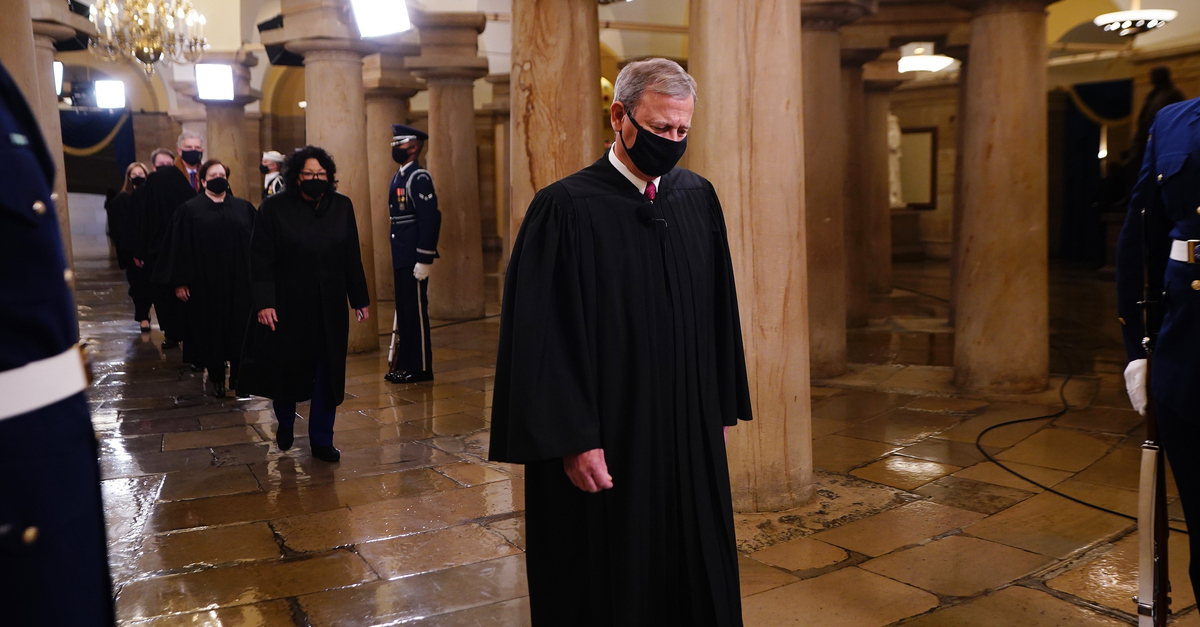
The United States Supreme Court presided over oral arguments in the companion cases Carr v. Saul and Davis v. Saul Wednesday morning, and the justices were noticeably more subdued than they had been during Tuesday’s arguments challenging Arizona’s voting procedures. Wednesday’s cases raised questions about when a person seeking Social Security benefits can challenge the validity of the judge who conducted the administrative hearing.
Both John Davis and Willie Carr each applied for and were denied disability benefits after a Social Security Administration (SSA) hearing. Each appealed, and lost again at another hearing. Davis and Carr each filed a case in their respective federal courts, when, for the first time, they raised an issue that had never been presented during the administrative proceeding. In those appeals, they argued that the lower judges who presided over their SSA hearings hadn’t been valid judges at all, because the process by which the administrative judges had been appointed violated the requirements of the Constitution’s appointments clause. The courts ruled that federal court proceeding was too late to raise the appointments-clause challenge for the first time.
This isn’t the first time we’ve heard disputes over the appointment of administrative judges. The Supreme Court decided Lucia v. SEC in 2018, which raised an appointments-clause issue about Securities and Exchange Commission judges. In that case, SCOTUS ruled that the judges were “officers of the United States” and should have been appointed in the manner that the Constitution’s Appointments Clause requires (by the president, the head of their department, or a court). Because of the Court’s ruling in Lucia, no one is disputing the claim that the Social Security judges were also sitting improperly, having been hired instead of appointed with constitutional formalities.
What is in dispute, though, is the timing. The Eighth and Tenth Circuits ruled against Davis and Carr on the grounds that they should have raised their appointments-clause arguments at the earlier hearings before the social security judge, and not for the first time in federal court.
Attorney Sarah M. Harris faced an obvious uphill battle arguing on behalf of the petitioner claimants. Several justices pelted Harris with questions about the fairness of allowing a petitioner to raise an argument for the first time at the federal court level.
“Under your theory, what would prevent a claimant from arguing before the ALJ that he has a leg injury, and then arguing for the first time in district court that he also has a back injury for a second bite at the apple so he can get an award?” asked Chief Justice John Roberts.
Justice Clarence Thomas followed up, posing a hypothetical. “[What if] claimant doesn’t like the first ALJ, doesn’t object to that ALJ, and then later on at the district court level, then objects to the ALJ?” queried Thomas. “Shouldn’t there there be some concern about that level of sandbagging?” he asked.
Justice Stephen Breyer followed up on Thomas’ concerns, telling Harris, “I share Justice Thomas’ suggestion that not necessarily new evidence—but lawyers are very imaginative, they’re very good, you sit in your office and you think of excellent arguments that people have actually never raised before, and you bring them all to the district judges —why isn’t that a problem?”
Justice Samuel Alito used his time to put more pragmatic arguments to counsel.
“Was your client hurt by the manner the ALJ was appointed?” he bluntly asked.
Harris responded that individuals do have a personal interest in having their cases heard by judges who have been appointed in accordance with constitutional rules. Alito responded with follow-up questions, about whether there would really be any practical impact of raising the appointments clause arguments now, after many of the SSA ALJs have been re-appointed in a manner that does comport with Constitutional requirements.
“Is that realistic in this case?” Alito asked. “Is this ALJ now smarter than he or she was at the time of the your hearing? More inclined to be favorable to applicants like your client?” he questioned.
As the proceedings turned to Assistant to the Solicitor General Austin Raynor’s argument on behalf of the Department of Justice, the bench had few incisive questions. Justices Alito and Sonia Sotomayor were entirely silent, while Justice Brett Kavanaugh traded chuckles with Raynor after making a rather congenial inquiry.
“You’ve given us alternative ways you could win,” Kavanaugh told Raynor. “If you were to lose, what’s your preferred approach?”
Justice Amy Coney Barrett posed what initially seemed like a pragmatic observation that would cut against the government’s position. Pointing out that social-security hearings are by nature non-adversarial, Barrett asked, “What incentive does the claimant have to say to the ALJ, ‘you know you actually can’t give me benefits, and you can’t adjudicate this proceeding, because your appointment should have been made under the appointments clause?'”
Raynor’s answer, however, responded that Barrett’s observation actually supports his position in the case.
“Your question highlights the threat of sandbagging here,” Raynor explained. “As a practical matter, they don’t have an incentive to raise this early.” The method of the presiding judge’s appointment “really has no effect of likelihood of success on the merits,” Raynor said.
“In this context,” he continued, “the petitioners and other claimants have every incentive to litigate on the merits, through ALJ and agency proceedings, and once they get to district court, to pull out the appointments-clause argument to obtain a free do-over if they weren’t successful the first time around, which is precisely what is occurring here.”
Such a system “confirms the threat of sandbagging,” Raynor concluded.
[image via Jim Lo Scalzo-Pool/Getty Images]
Have a tip we should know? [email protected]